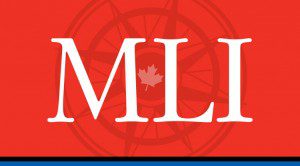 Brian Ferguson maps out a plan for how the United States can replace Obamacare with a more effective universal – but not government-run – health insurance program.
Brian Ferguson maps out a plan for how the United States can replace Obamacare with a more effective universal – but not government-run – health insurance program.
By Brian Ferguson, Dec. 6, 2016
So President-elect Donald Trump wants to scrap Obamacare, except for the bits he likes, and assorted Republicans want to gut the whole thing, and perhaps they’ll succeed. The US certainly needs some sort of universal, though not government-run, health insurance. And while Obamacare has its failings, none of its critics are facing up to the real problem with the American health care system – the fact that employer-based health insurance ties your health insurance to a particular employer.
Insurance is a device that lets us share the financial risk of unpredictable serious illness among a large number of people, each of whom makes a contribution to a pool of funds to be drawn on by whichever of them becomes sick. Because health insurance companies contract with employers, not workers, and the employer could change carriers, each workplace plan is treated as a separate risk-sharing pool and some of those pools are very small.
Small-pool insurance has two primary drawbacks. One is that administrative costs eat up a larger proportion of premiums than in the case of large pool insurance; the more serious is that when there are only 20 people sharing the cost of each other’s medical care instead of 10,000, if one person develops a serious illness the solvency of the whole pool is threatened. In fact, it has been estimated that to be financially sound a pool would need to cover about 50,000 people. While there are some public and private sector plans which are that large, two thirds of US private sector employees are in firms of fewer than 5000 employees, with health insurance pools to match.
US health reformers know all this, but haven’t dared touch employer based plans for fear of political backlash. That can change, and it must change.
The rules supporting employer-based insurance date back to a couple of bad (from the economist’s perspective) decisions in the 1940s and 50s. Those rules should be changed so that workers still get insurance through their employer but without its being tied to a particular workplace. In essence, the US needs to merge the assorted insurance pools together into a few large pools, organized either on a state or a region basis. It needs an American version of the European Sickness Fund system, under which employees would still make their premium payments through their employers, but which would allow them to stay with their chosen Sickness Fund when they change jobs.
Once the US has pooled employer-based plans into large insurance pools, the road is open for universal insurance. Insurance will have to be mandatory, but people who object should take a look at how much the US spends now on care for the uninsured. They’ll need to take a long term view of the mandate: look to the German model in which people made a long term commitment to a fund, in return for which they were protected against having their premiums rise just because they got older. That model combined insurance against current costs with saving against future costs.
Along with a mandate would go a couple of subsidies. One would be income-based so that healthy low income workers, and their employers, aren’t burdened disproportionately. That could be worked through the income tax system, and would have to be accepted as a permanent budgetary item. The other would be a premium subsidy for those currently uninsured who have a pre-existing condition. If the system is designed properly, that should decline over time, although it might take a while, since it will hinge on new generations entering the pools.
From there it should be possible to shift the Medicaid population into the Sickness Funds, and gradually align the funds with Medicare, making lifetime health insurance virtually seamless.
The European model incorporates competition among funds, with the government mandating a basic plan covering major medical expenses and any preventive care which has been shown to be medically effective. Sickness Funds would be allowed to compete on items outside the mandate. Insurance regulation would need to be changed so that there were several competing funds operating in each state or region to avoid a monopoly. But effective competition doesn’t need a lot of suppliers – four or five per region would probably do it, although there would be no reason not to have more, so long as they had enough members to be actuarially sound.
The biggest obstacle to health insurance reform in the US has always been an urge on the part of reformers to do something right now. Yes, the system is a mess, but quick fixes ultimately just make the mess messier. So take a bit of time over it, declare nothing to be out of bounds (and this time mean it) and take a look at what’s worked in the rest of the world. Handled delicately, shifting to a sickness fund system should be politically feasible and might finally drain the swamp.
Brian Ferguson is a professor of economics at Guelph University and a member of the Macdonald-Laurier Institute research advisory board (macdonaldlaurier.ca).




